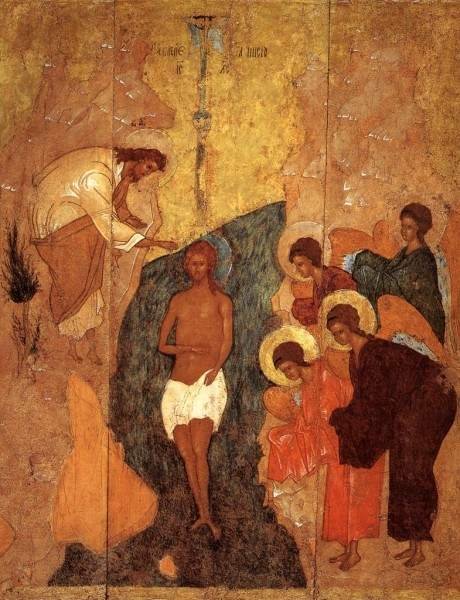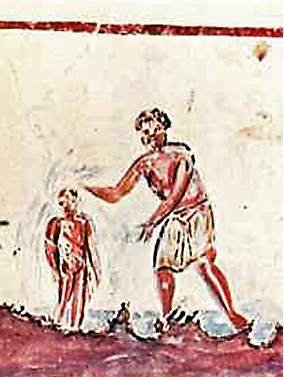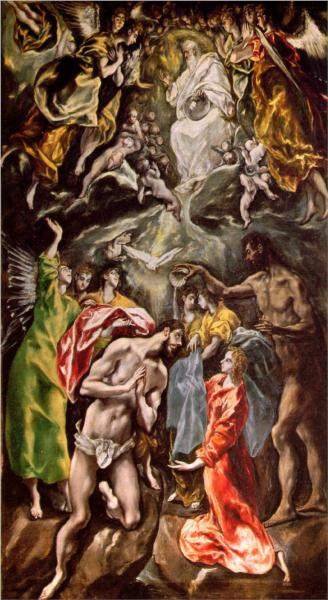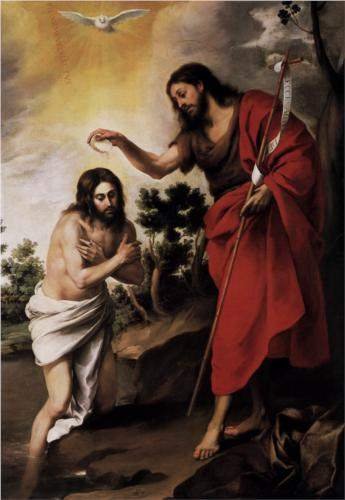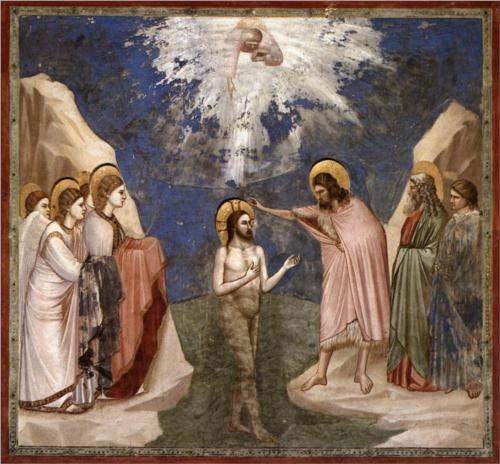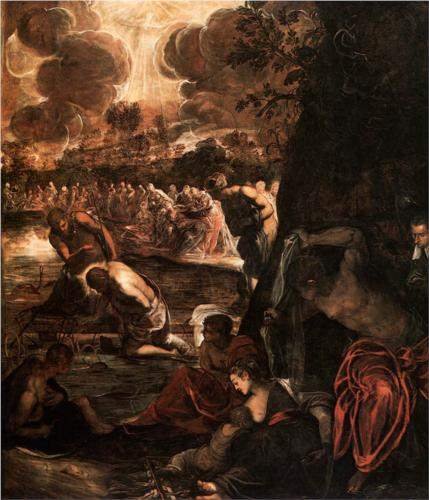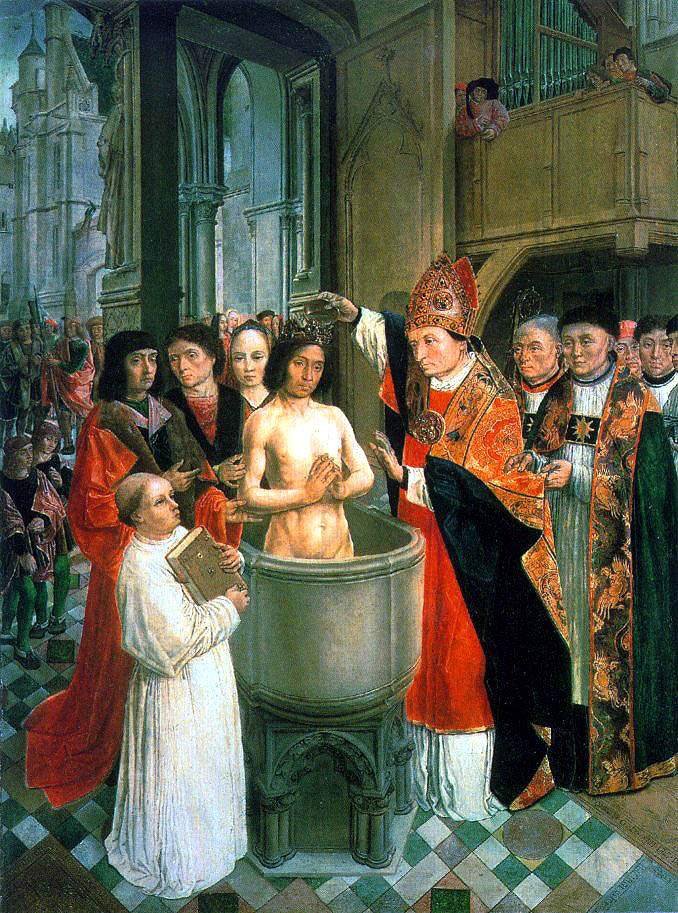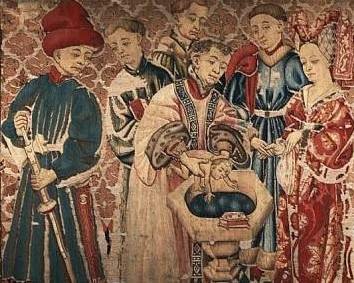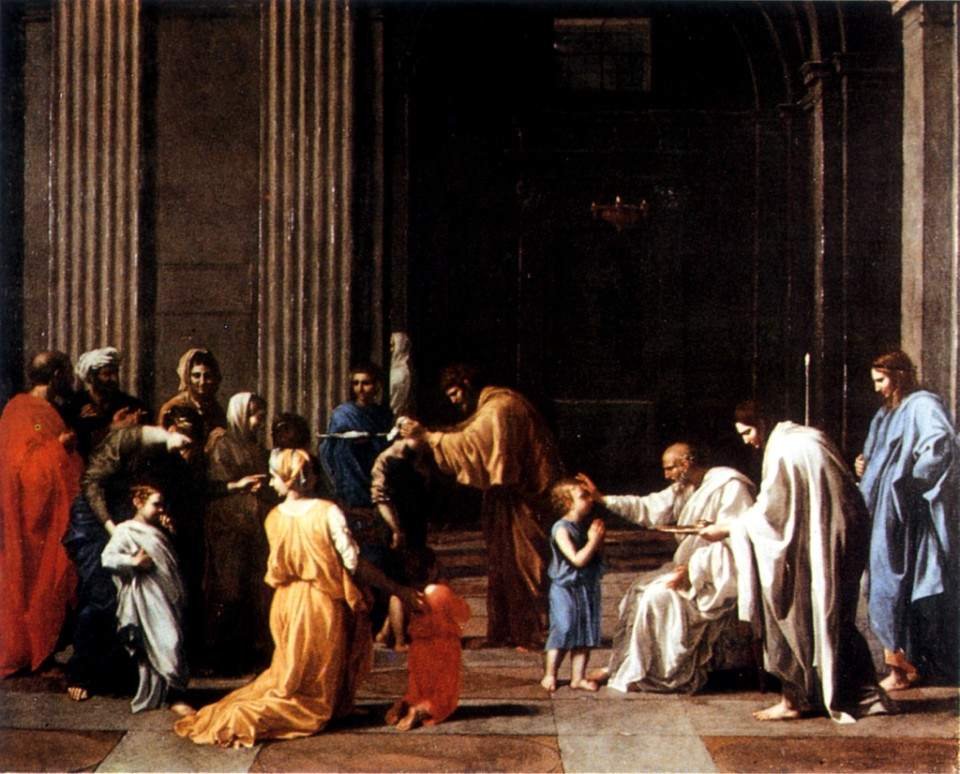
The Confirmation (1649) by Nicolas Poussin (from series on The Seven Sacraments). (SightsWithin.com)
I’ve written about the Sacrament of Baptism, by which the new believer’s sins are washed away, his or her old life is buried and raised again in a new life in Christ, and he or she receives the Holy Spirit. It is the first act of a believer’s initiation into the Church and into Christ. It is not a “work” by which we “save ourselves” — we are only brought to Baptism by God’s gift of grace — it is the means by which we receive God’s sanctifying grace.
A believer having been baptized has received the Holy Spirit and been washed in His grace; but we believe God has even greater things in store — an even greater outpouring of the Holy Spirit in the believer’s life. In the Catholic Church, baptismal grace — the process begun with Baptism — is completed and strengthened in the Sacrament of Confirmation. The Rituale Romanum (Roman Ritual) describes:
In baptism the Blessed Trinity comes to inhabit the soul; in confirmation the Father and the Son send to it the Holy Spirit in pentecostal mission to consecrate anew the edifice which the first sacrament has established. The one is the sacrament of birth; the other the sacrament of manhood. Baptism incorporates a man [or woman] in Christ and His Church; confirmation elevates his being in Christ through the anointing which brings more abundant grace. The former fashions; the latter strengthens. The former initiates; the latter seals.
In the Early Church, Baptism and Confirmation were generally celebrated at the same time, as part of a “double sacrament.” This practice has continued in the Eastern Orthodox tradition. In the West, however, the two Sacraments have been separated from an early date, out of a desire that the bishop of each church should celebrate the completion of Baptism — since, with the initiation of so many new Christians, through both natural birth and spiritual rebirth, he could not be present at every rite of Baptism.
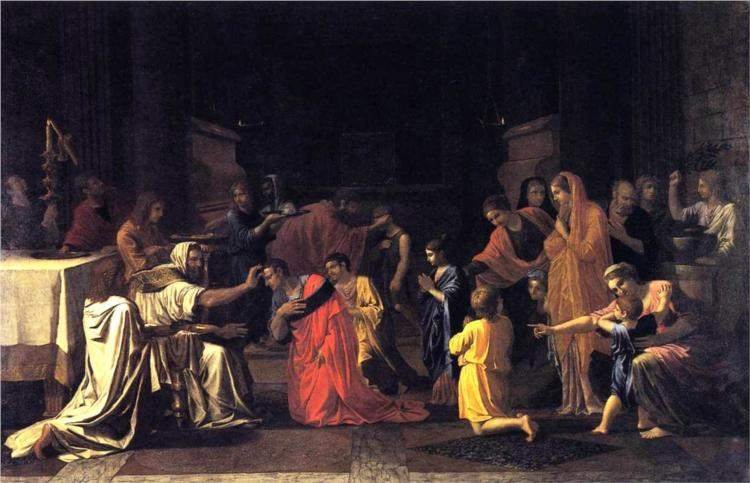
Confirmation (1645), by Nicolas Poussin (from series on The Seven Sacraments). The artist produced two separate series of seven paintings on the Sacraments (for different patrons). (WikiPaintings.org)
Confirmation, like Baptism, is a free, unmerited gift of God’s grace, and thus is open to all baptized Christians. By custom in the West, children of the Church receive Confirmation after they reach the “age of discretion,” have learned about their faith, and have freely chosen a deeper and more intimate union with Christ. At what age children receive Confirmation is at the discretion of each bishop and diocese, but the United States Council of Catholic Bishops (USCCB) has declared that the age for Confirmation should be between the age of discretion (“about the age of seven”) and sixteen. If a younger child is gravely ill and in danger of death, the Church extends Confirmation to them.
Adult converts to the faith receive Confirmation at the same time as their Baptism; or if they have already received Baptism, as in my case, Confirmation is itself the rite of initiation into the Catholic Church, together with partaking of the Eucharist.
As with the other Sacraments, Confirmation accomplishes an inward, spiritual grace by means of an outward, visible action. Confirmation has several outward manifestations. The most basic, ancient, and biblical sign of Confirmation is the laying on of hands (Hebrews 6:2), to impart the gift of the Holy Spirit. Very early in the Church, to better signify this gift of the Spirit, the anointing with perfumed oil, the oil of chrism, was added to the rite. As Christ is the Anointed One, Christians thus are anointed to mark the fullness of their communion with Him. The anointing with oil represents, as it does in the Old Testament, a spiritual cleansing, a healing, an outpouring of joy, the commissioning to a divine vocation — the Sacrament of Confirmation reflects each of these dimensions. From this anointing, Confirmation is known in the East as Chrismation.
The anointing with oil — the tracing in oil of the sign of the Cross on the forehead of the believer — also marks the believer, places on him or her the seal of the Holy Spirit. Just as a document bears the seal of its Author and Judge, or a sheep bears the mark of its Master, the believer is marked with the indelible seal of belonging to Christ, of bearing His Spirit and carrying out His mission. In the Latin rite, the minister of the Sacrament, with the laying on of hands and the anointing with chrism, speaks, “Be sealed with the gift of the Holy Spirit” (Accipe signaculum doni Spiritus Sancti).
For as much as I have striven in my life as a Christian to avoid the emotionalism of my Pentecostal youth, my Confirmation and First Communion were among the most joyful, most deeply felt moments of my life. I felt more intimately joined with Christ than I ever had before. I felt the mark on my forehead even after I had washed it. Since that day my life of faith and my Christian walk have been changed and deepened radically. I am Christ’s! I am sealed with His Spirit! I am united with His Holy Church! This ancient Sacrament of the Church has been such a profound outpouring of grace in my life, such a precious gift of love — I feel that it in itself, in its moment, is an incomparable prize that all should seek after. Thanks be to God that it will be followed by a lifetime of the most intimate Communion!
(For a fuller treatment of Confirmation, see §§1285–1321 in the Catechism of the Catholic Church.
Coming up next:
- A biblical study of the Sacrament of Confirmation in Scripture
- A consideration of Confirmation and Protestantism


